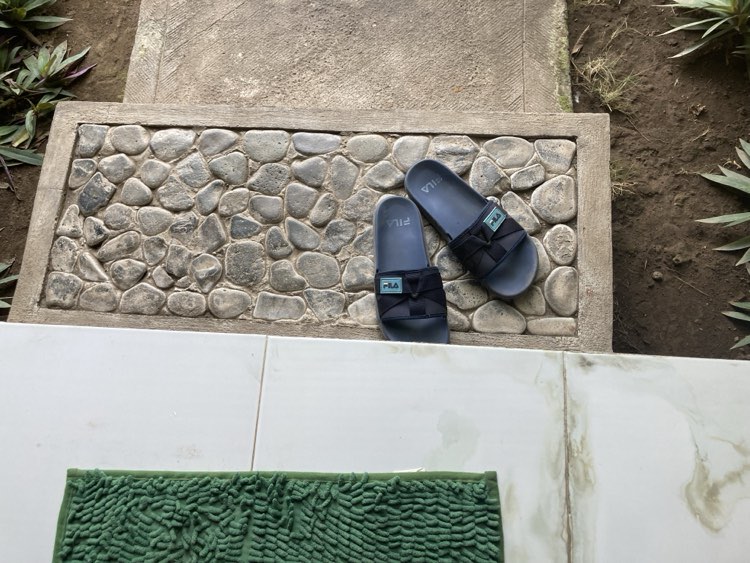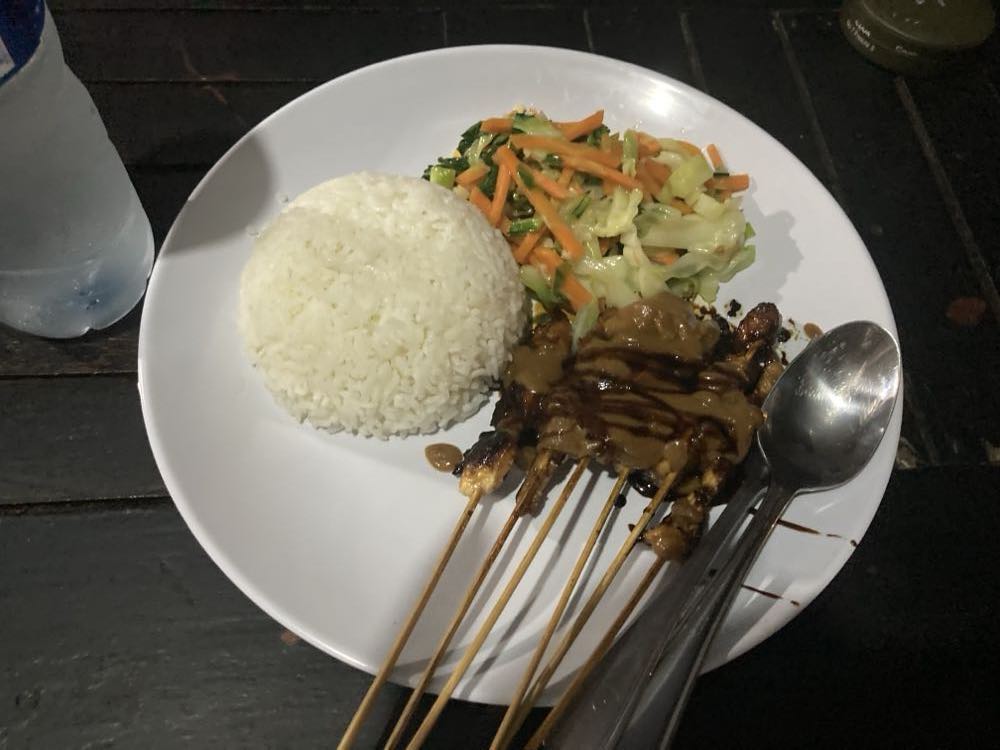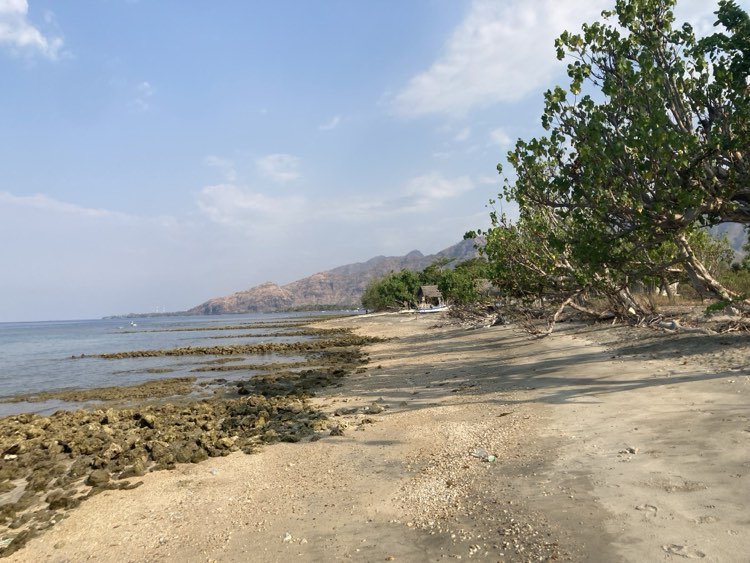Essential Tips for Cultural Etiquette in Indonesia – Travel with Respect
Indonesia is a country with over 17,000 islands, each with its own distinct cultures, languages, and traditions. Visiting this archipelago is like diving into a melting pot of communities. However, it’s important to be mindful of the differences in customs and traditions. This guide serves as a beacon to ensure that your interactions in Indonesia are respectful and understanding.
Many people think Bali is an exception to many things, but always remember that you’re just a tourist visiting their country! With many things, Bali is a lot less strict, but you should still know about general etiquette for traveling to Indonesia!
Indonesia has the largest population of Muslims in the world! While Bali is mostly Hindu.
Understanding Rudeness – What’s Considered Offensive in Indonesia?
When traveling between cultures, certain behaviors may be perceived differently. Traveling Indonesia there are some important general rules you should always follow.
The Basic and Most Important Rules!
- Your left hand is dirty! For any interactions always use your right hand. Are you left-handed? Eat with a spoon.
- Cover up! If you’re a woman you should always have a scarf or something available to cover your hair. Look after what everybody else is doing, and do the same! keeping long pants in your backpack is smart.
- Finish your food! But if you’re invited to a home make sure to just finish your plate. We cover this later in the article.
- The hierarchy is strong – showing more respect to elderly people and those in high positions.
- In many places, you will see Indonesians not strictly following these rules. like using their left hand sometimes. But you don’t know when, so for easy travel just follow the rules!
- Indonesian people love to smile! and a smile will bring you very good out of almost every situation even if you offend someone. Never ever get angry!
- Avoid being controversial! Don’t bring up politics, go with the flow, smile, and don’t be negative. Everybody else is taking their shoes off? Then you do the same! Doing this will make you have a great trip!
Personal Space and Physical Contact
While Indonesians are generally warm and hospitable, there’s a defined boundary when it comes to physical contact, especially between opposite genders. Avoid touching except a handshake with your right hand if they reach out for a handshake. Public displays of affection, like hugging and kissing, are frowned upon, especially in rural and conservative areas. In some areas, men should be careful of starting conversations with other women.
Address and Titles
Indonesians place a significant emphasis on respect. Always use titles or honorifics when addressing someone, especially if they’re older. Avoiding the use of first names unless explicitly allowed can save many an awkward interaction. This is mostly when interaction with someone you will have a longer interaction with.
Pointing and Gestures
In many cultures, pointing with a finger is a regular indication of direction or emphasis. In Indonesia, it’s deemed rude. Instead, use your thumb with a closed fist instead of your index finger. Similarly, pointing or waving at someone with a finger is considered offensive.

Leave your shoes outside, and don’t show the soles of your foot.
Dining Etiquette: Relishing Indonesian Cuisine Respectfully
Indonesian cuisine is a flavorful adventure. However, before you dive into that plate of Nasi Goreng, here’s what you should know.
Before the Meal
It’s a common practice to wash hands before eating. In many traditional settings, a bowl of water might be provided for this purpose. Always wait for the eldest person to start eating or for a signal from your host before you begin.
During Ramadan, you should not eat, drink, or even smoke in public places. How to know? Just look around you and do the same as the locals are doing.
Eating Habits
When in Indonesia, remember to use your right hand for eating, whether you’re using utensils or your fingers. It’s essential to be aware of this, especially since the left hand is reserved for personal hygiene and is considered unclean. If you’re offered food, it’s polite to accept, but if you must decline, do so graciously.

If you are left-handed use a spoon and not your fingers to eat with. I have still not visited a place where they didn’t have a spoon. But you should try eating with your right hand, it will for sure make someone smile at you!
Finishing the Meal
When dining at a restaurant, it is customary to finish the food on your plate. However, the rules differ when you are invited to someone’s home. It is considered polite to wait for the host to initiate the meal and tell you when you can start eating or drinking. In some cases, the host may even wait to eat until you have started, as a way of showing their appreciation for your presence.
Make sure you wash your right hand first, it’s okay to do that with drinking water. The host will eat later, so make sure you just have a little bit of everything.
Adhering to Social Norms in Everyday Interactions
Interactions in Indonesia are a delicate dance of traditions, honor, and mutual respect.
Dress Code
Modesty is highly valued. While tourist areas might be more liberal, it’s always advisable to dress modestly. If you’re visiting religious sites, covering up is essential. For women, wearing a scarf or a sarong is often appreciated.
Greetings
A traditional Indonesian greeting involves saying “Selamat” followed by the time of day, like “Selamat Pagi” for good morning, good night is: “Selamat Malam”. While handshakes are common, they might be softer than what many Westerners are used to. Often, after shaking hands, Indonesians might bring their hand to their chest, signifying that they’re taking the greeting to heart.
Gift Giving
If you’re invited to an Indonesian home, it’s polite to bring a gift. However, avoid gifts that are wrapped in black, as it’s associated with mourning. Gifts are often not opened immediately but set aside to be opened later. Don’t give alcohol or food (unless it’s been agreed on). Try giving something that has a meaning, or a story to tell.
Mastering the Art of Haggle: Shopping in Indonesia
Markets in Indonesia are vibrant, colorful, and full of life. And yes, haggling is an essential part of the experience.
Starting the Bargain
Always approach with a smile. Start by asking the price, then counter with an offer that’s 50-60% of the initial amount. But remember, this is a dance, so be respectful and light-hearted. And sometime you should only offer 10% of the initial price, it’s not always easy to know. Smiling while doing the haggling will make it easier. And remember, sometimes its really not a lot of money.
Reading the Situation
If a seller refuses to budge or looks genuinely offended, it might be time to reconsider your offer. Sometimes, walking away can also result in the seller calling you back with a better price.
Once you’ve agreed on a price, the deal is typically sealed with mutual gratitude. It’s essential to understand that haggling isn’t just about getting the best price but also about building a connection. Often they want to just know more about you and have a conversation, then you can go back to the haggling.
Navigating Conflicts: How to De-escalate Heated Situations
Misunderstandings happen. In a foreign culture, the risk is even higher. In general Indonesian people don’t want to be angry at you.
Recognizing Signs of Discomfort
Indonesians, in general, avoid confrontations. Raised voices, prolonged silence, or evident discomfort are signs that you might have stepped on a cultural landmine.
Offering Apologies
If you feel you’ve caused offense, a sincere apology can go a long way. The phrase “Maaf, saya tidak tahu” translates to “Sorry, I didn’t know.” Sometimes, simply acknowledging a misstep with genuine regret can ease tension.
Seeking Mediation
In situations where misunderstandings escalate, it’s sometimes beneficial to involve a third party. Whether it’s a local guide, hotel staff, or any trusted Indonesian acquaintance, their mediation can provide clarity and perspective to both parties. The ultimate aim is to maintain harmony, an integral aspect of Indonesian culture.
Stay calm and try to read the situation. Did you offend someone, then being truly sorry and relaxed is your best option. If you break something, well then you should also pay for it. Keeping a smile when interacting will help you. In Indonesia smiling is part of the conversation, and smiling to someone on the street is always a great conversation starter.
Try to remember the most important things, and always smile!
Indonesia is a country with a rich tapestry of cultures, traditions, and customs, that offer a profound experience for travelers. As with any journey into unfamiliar terrains, understanding the cultural cues and etiquettes can immensely enhance the quality of your interactions. By being mindful and respectful, you can ensure a smoother journey for yourself and leave behind memories of goodwill and mutual respect.
Visiting Indonesia isn’t just about the picturesque landscapes or the sumptuous cuisine; it’s also a journey into a deeply rooted cultural ethos. By following this guide, you’re not only equipping yourself with knowledge but also ensuring that your travel footprint is one of understanding, respect, and gratitude.







